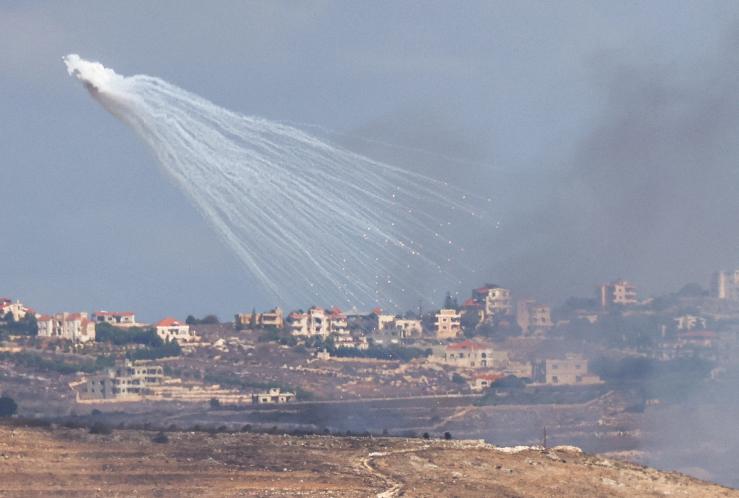The News
Israel vowed revenge on Iran for Tuesday’s missile attack, as global leaders renewed calls for an immediate de-escalation.
However, Israel’s foreign minister declared United Nations secretary-general António Guterres a persona non grata, banning him from entering the country for failing to condemn Iran specifically in his response to the attack.
Israeli officials said they were considering targeting Iranian oil facilities and other strategic sites in a “significant retaliation,” Axios reported. Meanwhile, Israeli tanks have crossed into Lebanon and the army called on civilians to evacuate a larger swath of the south of the country, signaling an expanded assault.
Iran’s foreign minister cautioned the US against intervening hours after US President Joe Biden reiterated support for Israel.
Most of the Iranian missiles were shot down by Israel’s aerial defense systems, the BBC wrote, with no deaths reported so far. Israel’s strikes on Lebanon have killed more than 1,600 people since cross-border fighting between Israeli forces and Hezbollah broke out last year.
SIGNALS
All-out war may have already started
Recent developments are a sign that a full-blown war in the Middle East has already materialized, The Guardian’s world affairs editor argued. Until a few weeks ago, US officials were convinced their diplomatic efforts could foil a large-scale attack on Israel from Iran, CNN reported. That appears not to be the case anymore. “I think Nasrallah was the final straw” for Iran, an analyst told CNN, referring to Israel’s recent assassination of Hezbollah’s leader in Lebanon. But there’s room for disagreement: “The long term goal of all Iranian foreign policy is regime preservation... They don’t get themselves into a situation where that regime is actually subject to direct attack by Israel or the United States or anyone else,” a retired Commander of United States Central Command told NPR.
A Lebanon offensive carries its own risks for Israel
Global attention has focused on the risks of a full-blown war between Israel and Iran, but Israel’s offensive into Lebanon carries its own risks. Israel has a history of “unsuccessful” invasions of Lebanon, an expert wrote in The Conversation. An ostensibly limited operation in 1982 originally intended to curb militant attacks from Lebanon ultimately turned into a nearly 20-year occupation, Politico noted, while a 2006 invasion aimed at destroying Hezbollah resulted in a UN-brokered ceasefire that favored the Lebanese paramilitary group. Israeli Prime Minister Benjamin Netanyahu believes he can succeed this time, but “the application of brute force has rarely served as a viable substitute for diplomacy in managing world problems” since World War II, the expert added in The Conversation.
Why hasn’t the West been able to do anything to stop the conflict?
Diplomatic efforts seem to have failed at avoiding escalation, particularly from Western countries. The EU has been unable to make any meaningful policy decision toward de-escalation, and the key issue limiting action could be the bloc itself, DW noted. Foreign policy decisions require unanimous approval, but EU member states are still too divided over the conflict. The US, on the other hand, has formed an “ironclad alliance” with Israel, particularly on military aid, and could exercise significant leverage over the country. But the relationship is built on local and strategic considerations, meaning Washington “will almost certainly never threaten to cut — let alone cut off — the flow of arms,” The New York Times noted.



